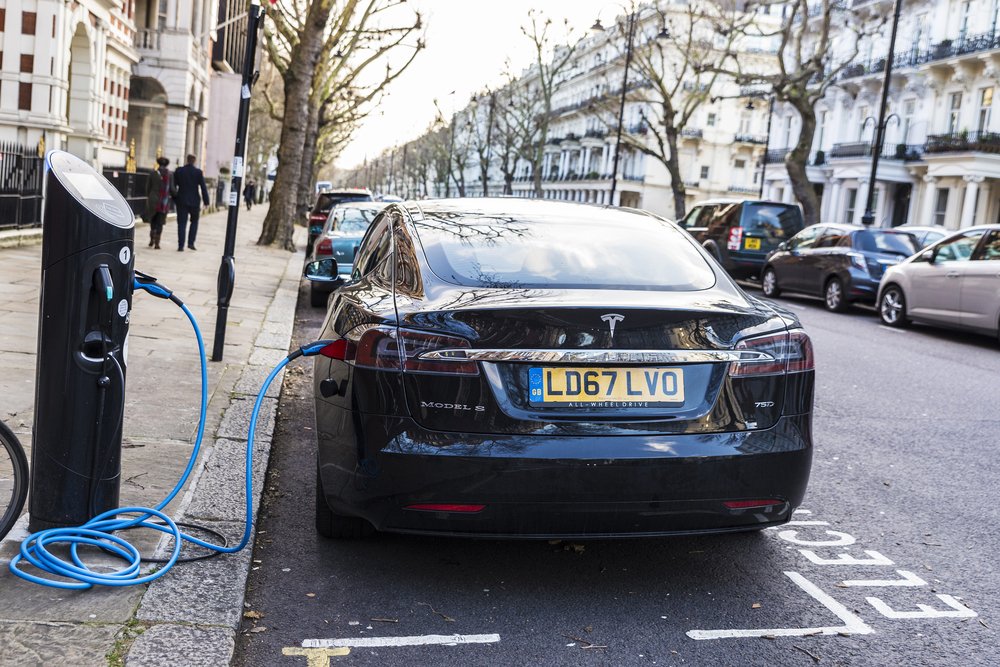Great Britain is planning a mileage-based road tax for electric cars, which is scheduled to come into effect in 2028. This new form of road tax is a response to declining revenue from fuel taxes. Estimates suggest the measure will cost drivers up to £250 annually. Experts warn of negative effects on the acceptance of electric mobility. At the same time, policymakers face the challenge of offsetting the loss of government revenue resulting from the increasing number of electric vehicles. (telegraph: 06.11.25)
Mileage-Based Charge as Part of Vehicle Tax
The planned mileage-based charge in Great Britain is calculated based on the number of miles driven. It supplements the existing vehicle tax system with a mileage-based component – a kind of road tax that more heavily involves climate-friendly vehicles in financing transport infrastructure. Hybrid vehicles will also be subject to the new road charge, albeit to a lesser extent. The measure is expected to generate an additional £1.8 billion in revenue by 2031. However, this measure is being implemented during a time of increased economic uncertainty. After all, electricity prices are rising, while the purchase of an electric vehicle remains more expensive than that of a gasoline-powered car.
Criticism from Transport Policy and Business Sectors
Many experts from automotive and business associations doubt the benefits of the mileage-based charge. Some fear that its introduction could abruptly halt the growth of electric mobility. They criticize the departure from previous subsidy strategies and lament the contradictory signals from the government.

The previous commitment to provide tax incentives for electric vehicles is therefore now in question. The skepticism also stems from the fact that politicians have so far failed to provide a clear answer to the foreseeable loss of revenue due to electromobility.
Budgetary pressure forces new tax models
The old fuel tax is becoming increasingly irrelevant. The number of vehicles with internal combustion engines is constantly decreasing, which inevitably leads to lower government revenues. The fiscal gap is growing year after year, and without new sources of revenue, a painful financial shortfall is looming. A former head of the Institute for Fiscal Studies sees a mileage-based road tax as not a perfect solution, but a practicable one. It is therefore not surprising that Great Britain is modernizing its tax framework.
Administration and control still unclear
The practical implementation of the mileage-based tax remains open for the time being. The government plans to determine mileage figures using annual mileage estimates. However, mandatory real-time monitoring is not planned for now. The Driver and Vehicle Licensing Agency (DVLA) will be responsible for monitoring the new regulation, even though the additional administrative burden is expected to increase significantly. Future systems could include digital logbooks or photo uploads of odometers, but concrete plans are lacking.
Impact on Electric Mobility
The new mileage-based tax jeopardizes an already challenging market. Customers considering switching to electric vehicles are now thinking twice. The additional cost pressure could lead buyers to opt for cheaper models from abroad. China is already one of the largest suppliers of affordable electric cars. At the same time, the government is shooting itself in the foot: subsidies continue despite the looming new burdens.
Political Divisions within the Government
The plan for a mileage-based tax is also causing discontent across party lines. Critics point out that the government publicly stated as recently as 2024 that it had no plans for a mileage-based tax. Statements of this kind contribute to political disillusionment. Representatives of the business community speak of a loss of confidence that could also jeopardize the energy transition.
